
www.SIParent.com Special Need S Re S ou R ce Guide State N iS la N d
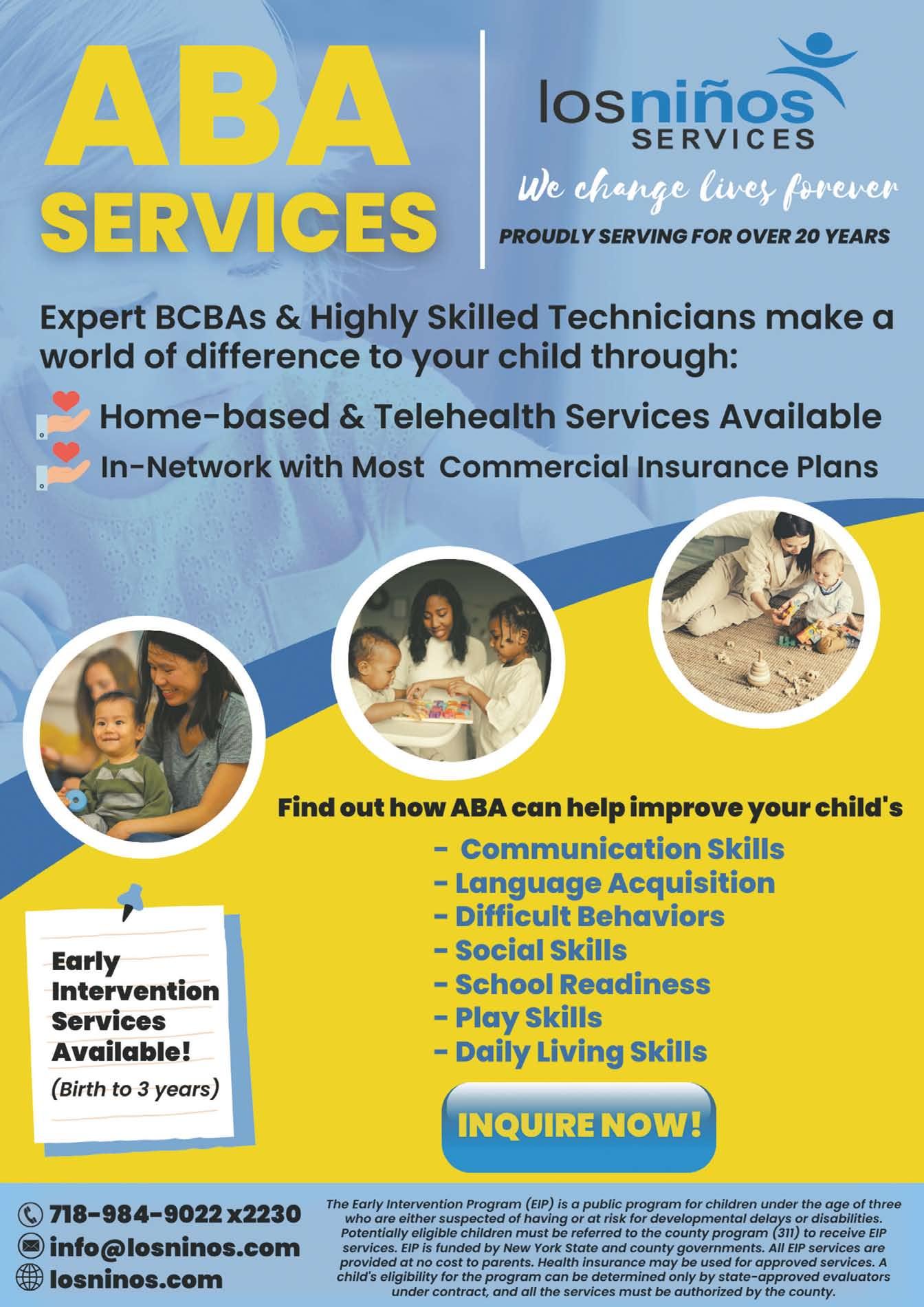


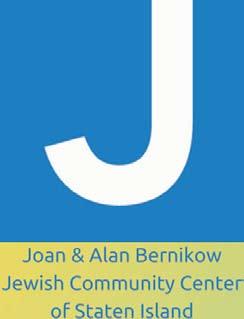
MARVIN’S CAMP MARVIN’S CAMP FOR CHILDREN WITH FOR CHILDREN WITH SPECIAL NEEDS SPECIAL NEEDS
H e n r y K a u f m a n n Henry Kaufmann






C a m p g r o u n d s Campgrounds
1131 Manor Rd
A social, educational, creative, and safe summer experience for kids and teens with special needs!
Highly experienced staff, Low camper-to-staff ratios!
Approved to accept funding through Medicaid Waiver & Self-Direction
Interviews required for new campers

Camp.SIJCC.org

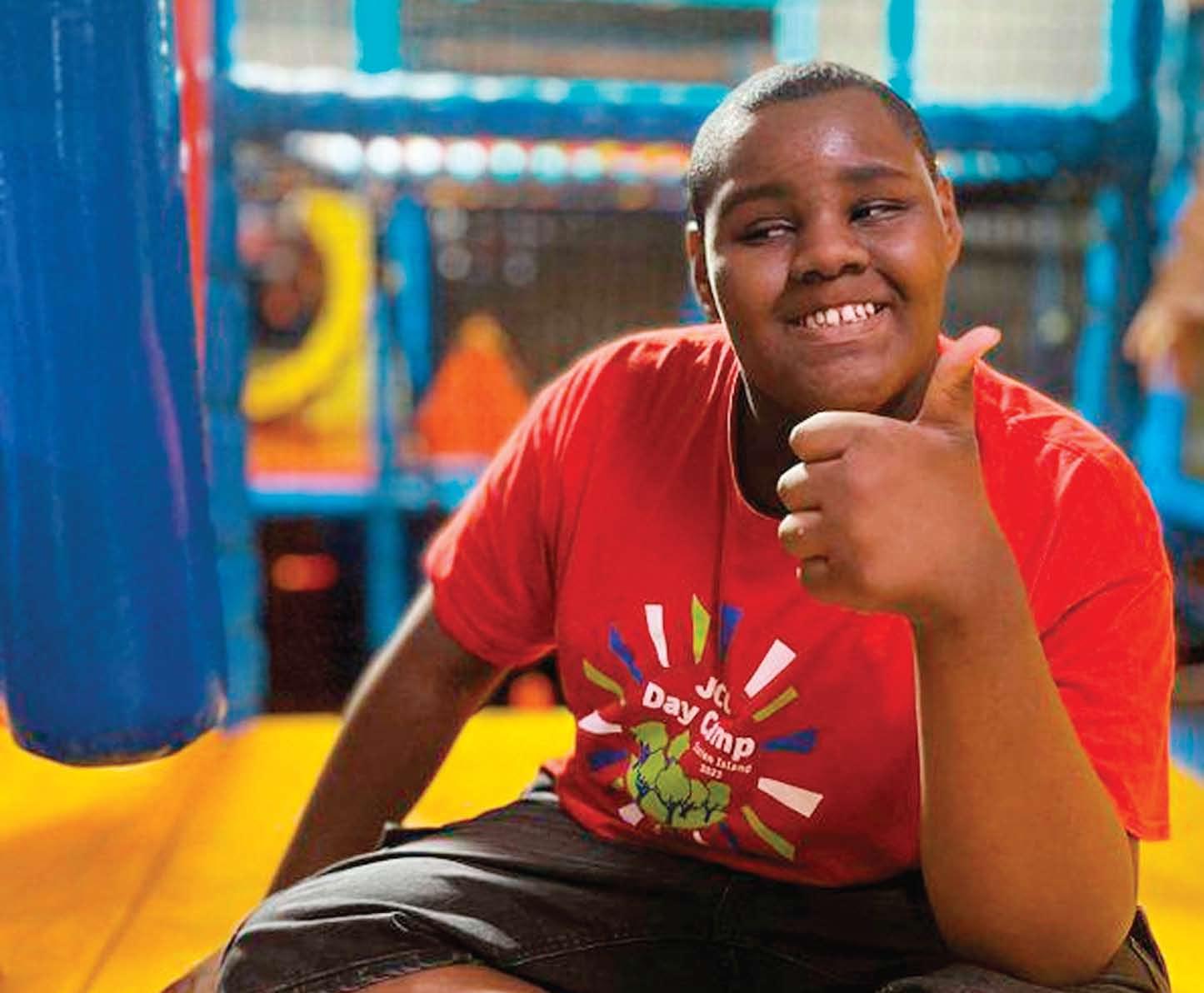


Publisher: Clifford Luster
De P uty eD itor: Jeannine Cintron
Community Content Creator: Shara Levine
eD itorial Dire C tor: Donna Duarte-Ladd
a sso Ciate Publisher: Erin Brof
aDvertising DireC tor:
Stacie Goldberg
aDvertising manager: Janine Mulé
Digital eDitor: Kaitlyn Riggio
Partnershi P managers: Lauren Alperin, Lauren Anchin, Joan Bergman, Mary Cassidy, Suzanne Cirigliano, Chris Cunnington, Lori Falco, Shelli Goldberg-Peck, LynnMarie Hanley, Lisa Herlihy, Nicole
Miller, Nina Spiegelman, Gwen Tomaselli
marketing & s trategy DireC tor: Rosalia Bobé
marketing & e vents a ssistant: Ashley Rivera
sales & marketing a ssistant: Elana Cantor
marketing assistant: Tilejah Gilead
eDitorial assistant: Alexa Lutter
art Dire C tor: Leah Mitch
Web Develo P er: Sylvan Migdal
g raP hi C Designers: Arthur Arutyunov, Connie Sulsenti
coNtact iNfoRmatioN
aDvertising : (718) 260-4554
Advertising@NewYorkFamily.com
CirCulation: (718) 260-8336
Tina@NewYorkFamily.com

6 | s pecial Child g lossary
Part of navigating a special needs or disability diagnosis is knowing the words used to describe it. Check out our helpful glossary
10 | autism
Many parents have that ‘a-ha’ moment when they realize their child may have a more profound challenge than previously expectant. Here are steps to take if you think your child is on the spectrum
12 | Dyslexia
Early signs of dyslexia and
intervention practices may vary from person to person. We sat down with an expert for helpful tips
18 | aD h D
ADHD in Children (symptoms, causes and non-medication treatment)
20 | s pecial n eeds listings
Helpful resources for the special need parent
22 | s pecial n eeds Community
The leaders and schools that support the Special Needs families
Comments? Questions? Suggestions? Email Jeannine at jcintron@siparent.com
Get news, tips and humor all month long: siparent.com/signup
aDD ress: New York Family Media/Schneps Media 1 MetroTech Center North, Third Floor Brooklyn, NY 11201
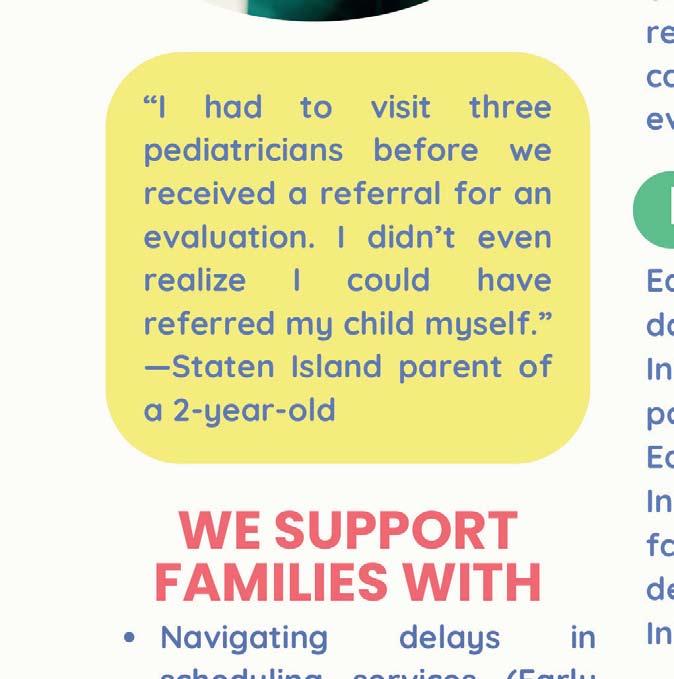
Presi D ent: Victoria Schneps-Yunis
Ceo : Joshua Schneps
Coo : Clifford Luster New
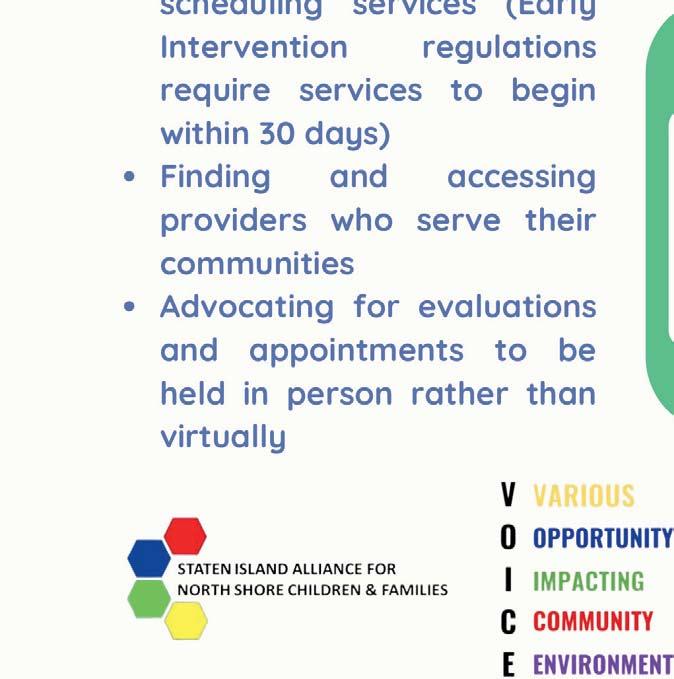
4 SIParent.com | April 2024
been
Gold Award for for Overall Design
Bronze for Website General Excellence. New York Family is published monthly by Queens Family Media, LLC. Reproduction of New York Family Media in whole or part without written permission from the publisher is prohibited. All rights reserved. ©2024 Queens Family Media, LLC 2023 get in touch NewYorkFamily.com E F X S O ? ? Y I ?
York Family has
awarded the PMA
and
coNteNts



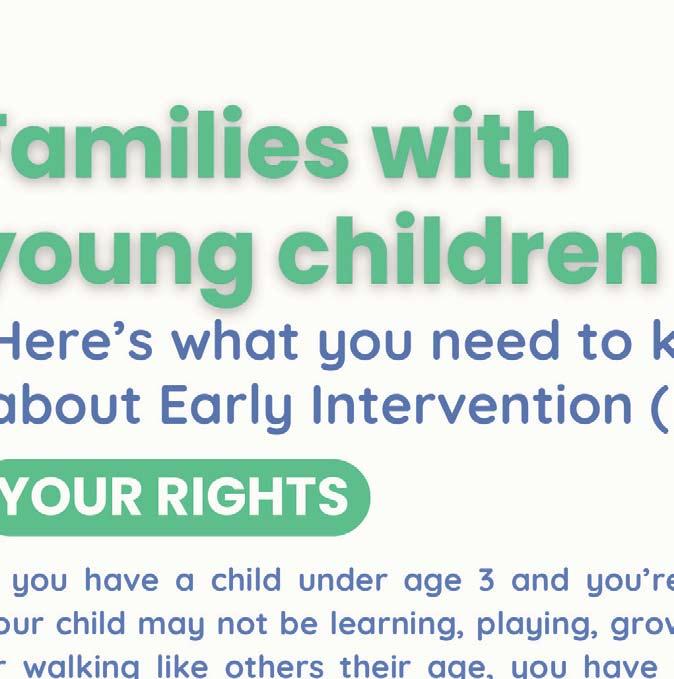
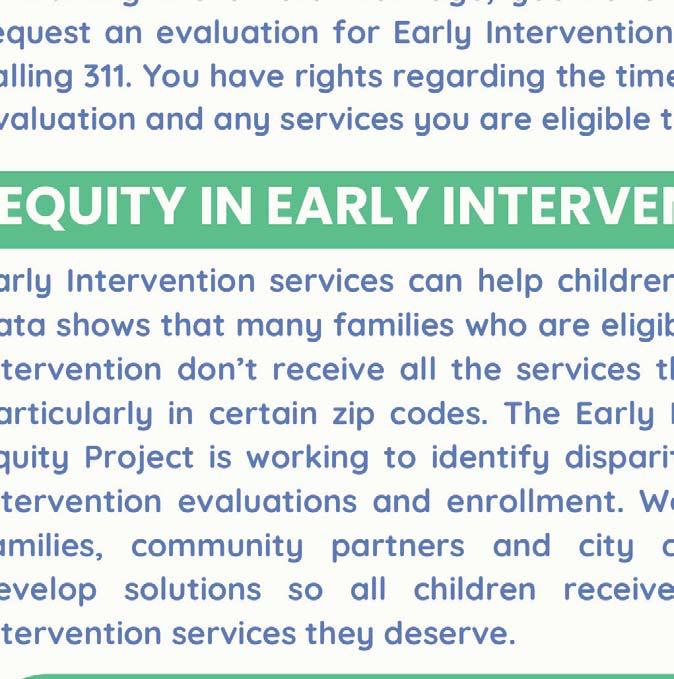
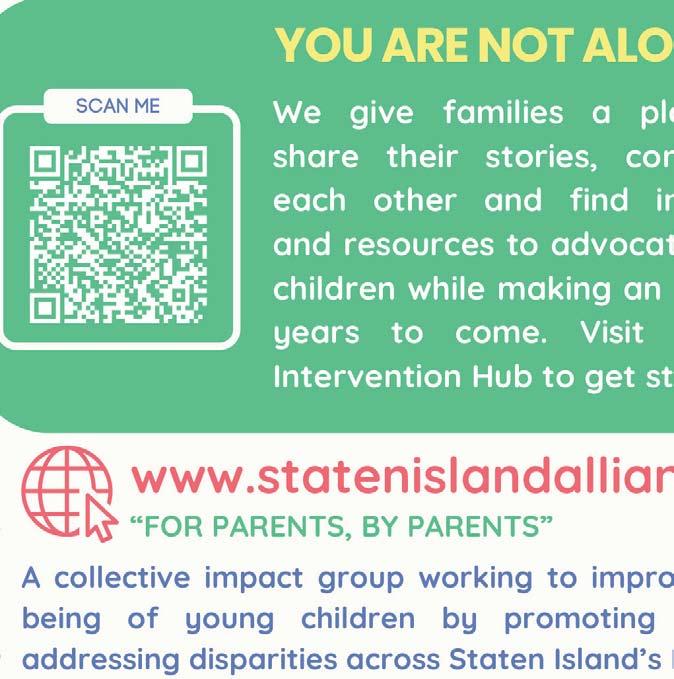


April 2024 | The Special Child

>SPECiAL CHiLD
Glo SS a Ry
Terms that families with children with disabilities should know
By mIa Sala S
Part of navigating a special needs or disability diagnosis (Developmental disability: Physical, learning, language, or behavioral impairments that will delay
your child’s development. ADHD, Autism, learning disabilities, etc. are all examples of developmental disabilities) is knowing the words used to describe it.
But it can be intimidating to ask what everything means, especially when doctors
or websites seem to be speaking another language with acronyms like “ERSS” and “OT”. We’ve all been in that confusing place before and, as parents, it’s not a fun feeling.
That’s why, we’ve created a glossary for keywords that you may want to know as a parent of kids with disabilities.
This guide includes common disability words, phrases, and acronyms so that you can feel more confident in your parenting journey!
aDhD (attention Deficit/hyperactivity Disorder) : A developmental disability that makes it difficult for your child to pay attention or stay focused. Look out for squirming and fidgeting, talking a lot, not being able to wait for their turn, or trouble concentrating.
6 SIParent.com | April 2024
special child





•
•
•
•
•
•



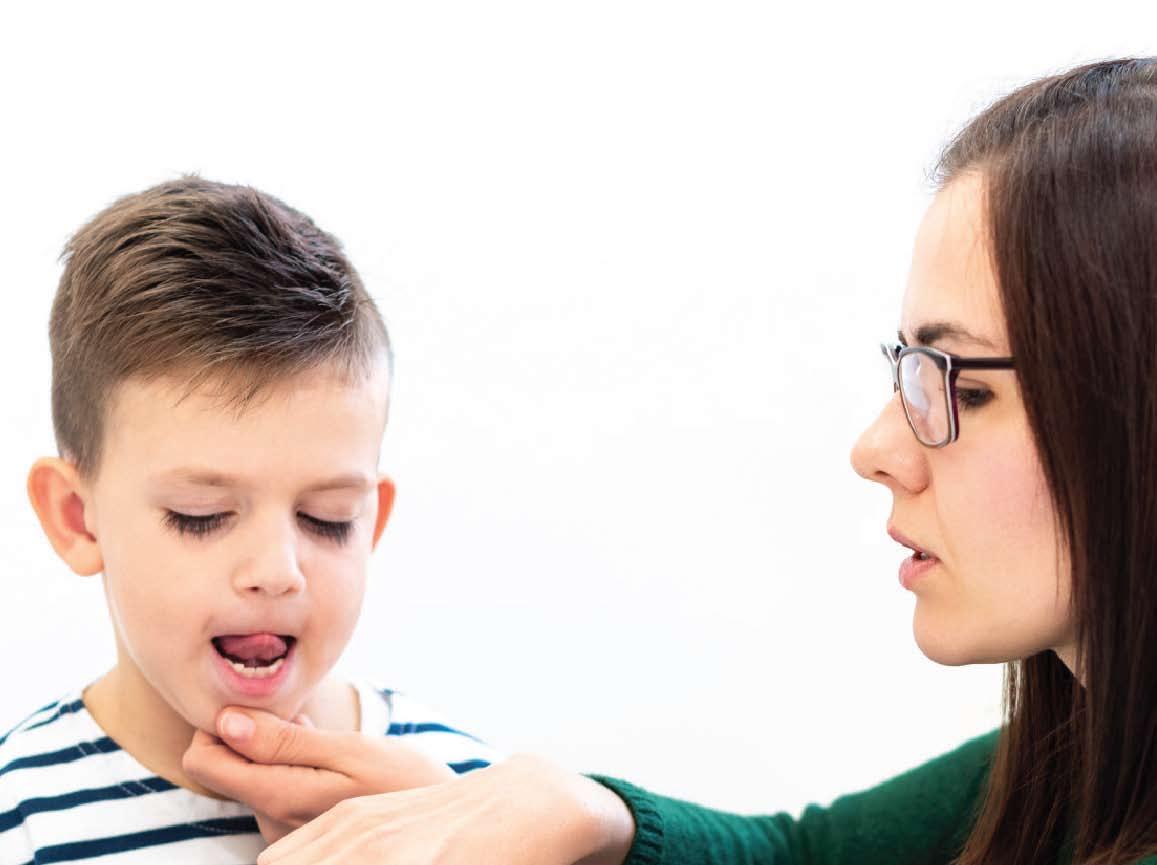














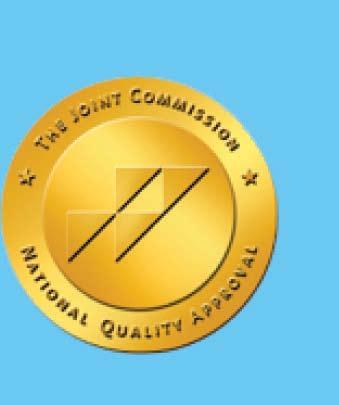



April 2024 | The Special Child 7
Skilled Nursing
Physical Therapy
Occupational Therapy
Speech Therapy
Medical Social Worker
Home Health Aide Direct Contact - Jamie Fialo 347-459-8441 Benefits of In-Home Therapy:
Familiar Environment
Eliminate Transitions
Family Involvement Services Available After-School and Dayhab Programs
3+
•
•
•
Ages
asD (autism spectrum Disorder) : A developmental disability that may delay your child’s speech, motor, learning, and social skills. Early intervention (see below) can help improve skills.
Down syndrome : A condition caused by an extra chromosome that affects how your child’s brain and body develop. Diagnosis typically happens before or during birth.
emotional Disturbance : Mental health disorders such as anxiety, bipolar, OCD, etc. that have no direct, identifiable cause. Be on the lookout for aggressive behavior, withdrawal or nerves related to social environments, and vocal outbursts in public places.
learning Disability: Difficulty learning and grasping new concepts. Learning disabilities include dyslexia (reading), dysgraphia (writing), and dyscalculia (math). See Special Education for more.
stutter : A speech disorder that makes it challenging for your child to say what they want to say. You may hear them repeat a sound a lot, hold one sound for a long time, or stop speaking mid-sentence.
h elpful resources
oPWDD (office of People with Developmental Disabilities) : A New York organization that can help connect your family to nonprofit services, based on what kind of treatment/therapy they need, and provide funding.
transition planning : Creating an action plan for what your child with disabilities will do after high school. This is often a part of your IEP (see below).
service provider : An agency or organization that will help your family navigate some aspect of your journey. This could be everything from speech therapy to after school programs with a focus on special needs to horseback riding as a form of physical therapy.
inCluDenyc : A non-profit organization that advocates for young people in NYC to be included in their communities: classrooms, workplaces, etc. They have super informative resources for parents of kids with disabilities, and they can connect you with professionals who can help you
navigate your options even further.
s pecial education inclusion : Everyone in the classroom feels welcomed by the school, teacher, and classmates. For kids with disabilities, inclusion is definitely a keyword to look for when choosing a school!
ieP (individualized education Program) : A written plan for your child’s education as a special needs student. According to the NYC Department of Education (DOE), this means your child is guaranteed a free and appropriate public education in a Least Restrictive Environment (see below). Your child’s IEP will also include development and progress reports, evaluation results, specific needs, and anything else that is relevant to your child’s success.
ieP teams : Your IEP team will be made up of you (as a parent/guardian), a school psychologist, a special education teacher (and sometimes a general education teacher), and the district representative. It may also include a school physician or other service providers who have worked with your child.
lre (least restrictive environment) : Your child will be in a classroom with kids who do not have a disability diagnosis.
setss (special education teacher support services) : Either a special education teacher will design specific activities for children with special needs or the special education teacher will collaborate with the general education teacher to modify the entire classroom to accommodate.
seDl (special education Distance learning) : Modifying special needs education for virtual/online students. This became especially important during the pandemic.
sWD (students With Disabilities) : Used to refer to special needs children in the classroom.
sC– special Class : If your child’s needs cannot be met in a general education classroom, they will have all classes taught specifically by a special education teacher. These classes are typically very small in NYC schools, with up to 12 students for elementary/middle school and up to 15 for high school.
Pbis (Positive behavioral interventions & support) : NYC school-wide approach that encourages positive behavior instead of punishing or pointing out the negative. One example of this is changing a poster from “No Food. No Weapons. No Drugs.” to “School Rules: Be Safe, Responsible, Respectful”. This positive environment is especially important for special needs education.
treatment & evaluation
aDl (activities of daily living) : Day-today actions like brushing your teeth, going to the bathroom, walking up and down stairs, etc. that are used to determine your child’s diagnosis and progress.
early intervention: Services and support for infants and young children with developmental disabilities. Early intervention can often help improve your child’s skills and progress.
ot– occupational therapy: Focuses on ADL’s (see above) and other everyday skills that your child will work on.
Pt- Physical therapy: Focuses on physical developmental disabilities and helps your child with mobility and movement.
speech pathology: Focuses on language and speech disabilities to help your child communicate their thoughts.
regression : Your child loses skills that they previously had. If regression happens, you may want to revisit and revise your child’s IEP (see above).
at (assistive technology) : Any device that helps your child’s special needs by improving their capabilities. AT’s include wheelchairs, text to speech, voice recognition, and more.
aba (applied behavior analysis) : A positive-reinforcement program designed to understand your child’s behavior in real life situations. It is most commonly used for children with Autism, but it can also be effective for other developmental disabilities.
Developmental milestones : Key movements, expressions, speech etc. that show your child’s progress. For little ones, this may include smiling at people, crawling, copying sounds, and reaching for toys.
8 SIParent.com | April 2024
special child
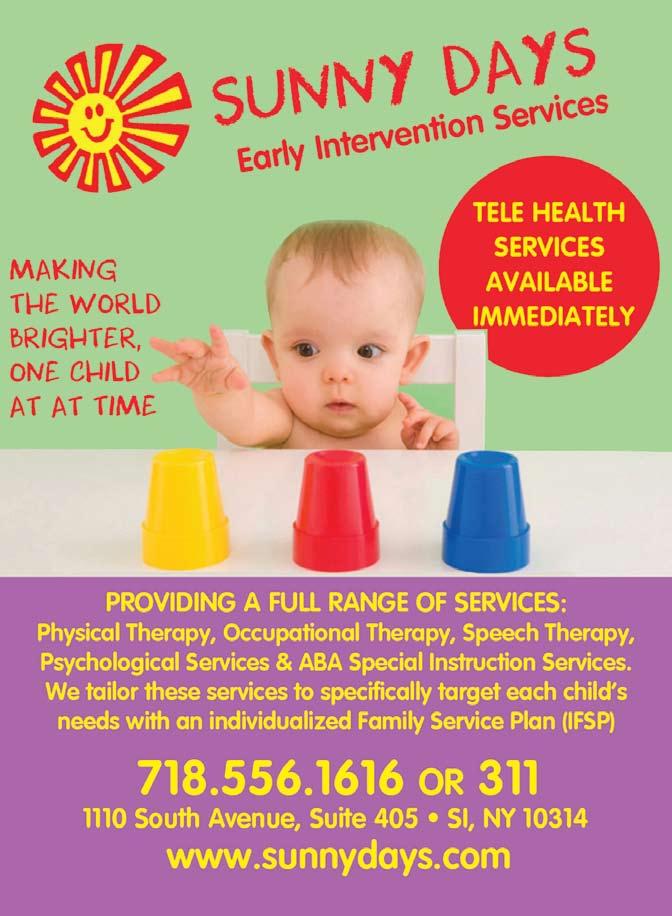

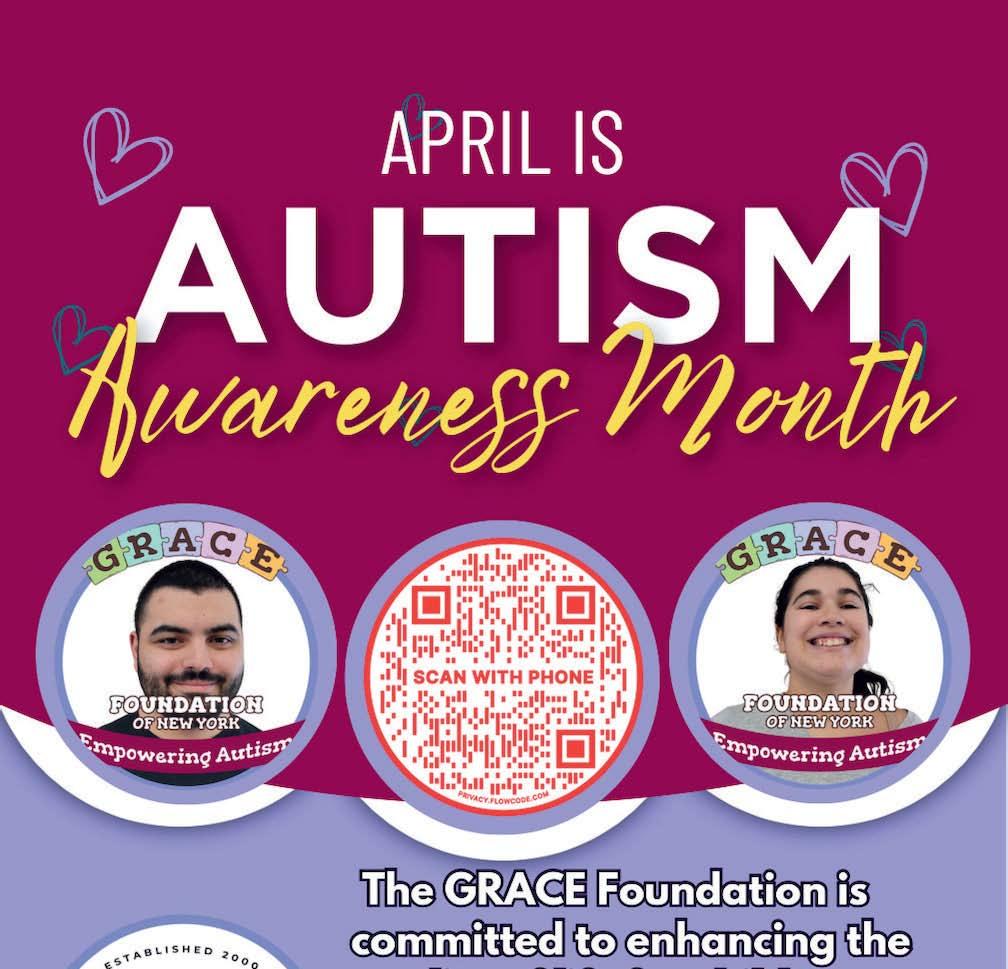


April 2024 | The Special Child 9
AUTISM
Steps to take if you think your child is on the spectrum
BY EMILY LEVY
Many parents have that ‘a-ha’ moment when they realize their child may have a more profound challenge than previously expectant. Unlike your friend’s kid at the same age, your child has trouble maintaining friendships, struggles to communicate, or demonstrates repetitive body movements. Perhaps they have difficulty relating to the world around them and seems inflexible with their thoughts and behaviors. If you notice these characteristics, don’t ignore them. While your child could be delayed, it may be wise to seek a professional opinion and check if your child may be on the autism spectrum.
Learn the Milestones
Many children with autism show developmental delays early on and don’t meet typical milestones. For instance, by 6-9 months, most babies can sit up without support, babble sounds, and respond to their name. By 9-12 months, babies typically grab objects and toys, crawl, and stand independently. Most children can walk independently between ages 1-3, climb stairs, jump, stack objects, speak in short sentences, and follow basic directions. Between ages 3-5, children can typically toss a ball overhand, get dressed independently, and draw a full person with all features. Children ages 6-12 generally have developed strong friendships with peers and are usually independent in completing their school work. If you notice delays or regression in any of these milestones and your instincts tell you something is off, your child may be at risk for autism.
Identifying Autism
If you think your child has autism, take action. The sooner you identify and address autism, the better it will be for your family. Speak to your child’s doctor; he or she may inquire as to whether all developmental milestones have been met and may recommend an autism screening. This screening typically consists of a series of yes or no questions regarding symptoms. If your doctor suspects

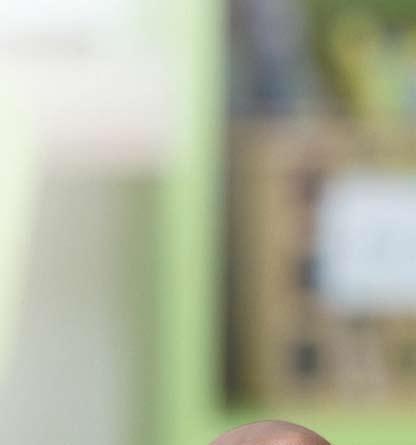



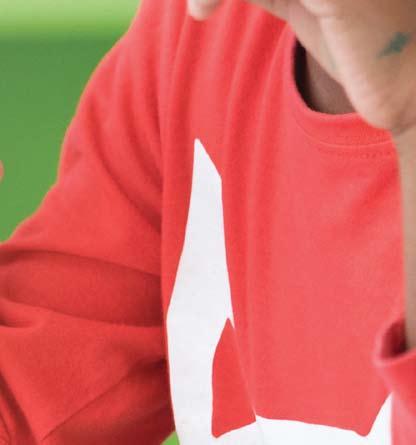


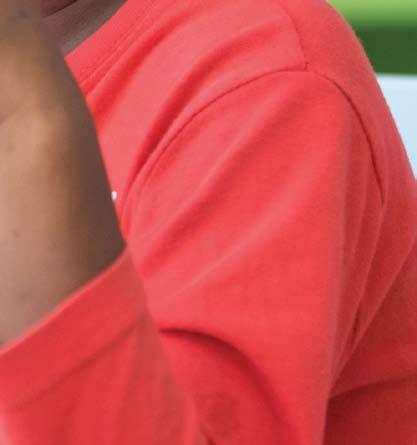
that your child may have autism, your child may need to have a full diagnostic evaluation by an ASD specialist. Typically, the evaluator will observe your child, ask you as the parent a series of questions, fill out questionnaires, and administer a series of tests to your child. These factors will allow the evaluator to identify whether or not your child may have autism so you can take appropriate action for a concrete diagnosis.
Your Child Receives an ASD Diagnosis — Next Step
First off, don’t panic. There are many resources and a great deal of support available for children with autism, and your child is certainly not alone! However, the earlier you intervene and seek your child’s services, the more gains you will see. Once you receive the diagnosis, which typically includes a full report, read it thoroughly and review the evaluator or doctor’s recommendations. Reach out to your child’s school to let them know about the diagnosis and inquire about creating an IEP (Individualized Education Program) to map out the services your child will receive based on their needs. These services may include special education classroom placement, speech therapy, occupational therapy, behavioral therapy, physical therapy, social
skills groups, etc. Also, learn what you can do at home to help your child, such as creating a set structure and routine and rewarding good behavior. The more you can work as a team with your child’s doctors, educators, and therapists, this will help provide consistent support to your child.
Many children with autism are kind, loving, high-achieving individuals who have countless gifts. With the right support, your child can succeed academically and thrive in life.
Dr. Emily Levy is the founder of EBL Coaching, a tutoring program that specializes in one-onone home and on-site instruction for students in grades preK-12 in NYC, NJ, and Westchester. She is also the author of Strategies for Study Success, a study skills workbooks series emphasizing test taking, note taking, reading comprehension, writing, and executive functioning strategies, and the Flags and Stars Orton Gillingham student workbook series. These books are currently used at schools nationwide. Dr. Levy studied at Brown University and later received her Masters Degree in Special Education and her Doctorate Degree in Education. She has spoken nationwide on research-based methods for teaching students with and without learning disabilities. Dr. Levy is currently the Director of EBL Coaching’s learning centers.
10 SIParent.com | April 2024
SPECIAL CHILD
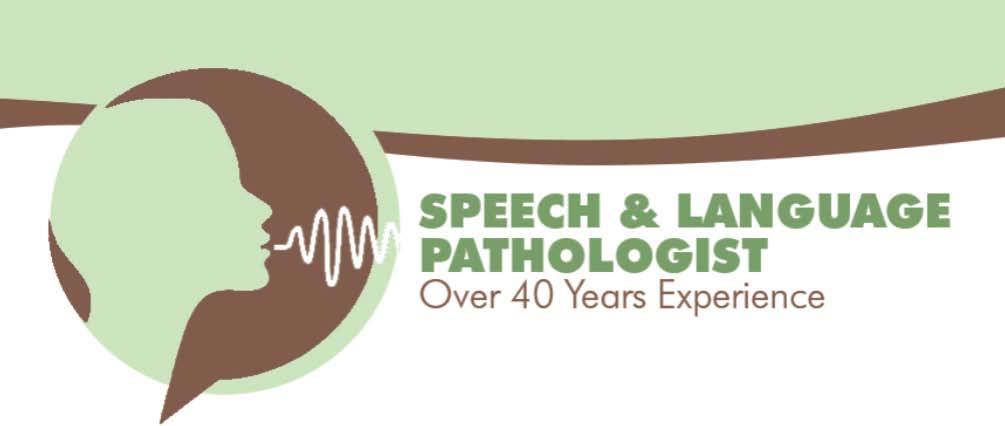

…that each and eve ry one of our stude nts can excel and that all dese rve the opportunity to reach their fullest pote ntial…

The Lower School Program provides basic skill remediation in a challenging academic curriculum for Grades 2–8.
The High School Program provides a complete high school experience for the bright adolescent with learning disabilities, providing basic preparation for studies at the college level or within a post-secondary program.

The Community School was founded in 1968 to se rve the bright child with learning and atte ntional disabilities
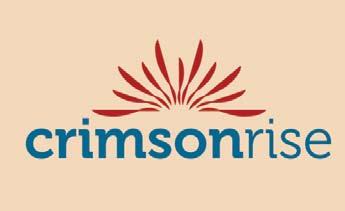
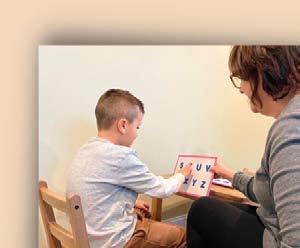
Crimsonrise teachesthem tospellto communicate



929-643-9101
Info@CrimsonRise.org
High School: 201-862-1796
1135 Teaneck Road, Teaneck, NJ 07666
Lower School: 201-837-8070
11 W Forest Avenue, Teaneck, NJ 07666
CommunitySchoolnj.org
www.CrimsonRise.org DoesyournonverbalAutisticchildcommunicate? WECAN'TWAITTOHEARWHATTHEYHAVETOSAY!!!
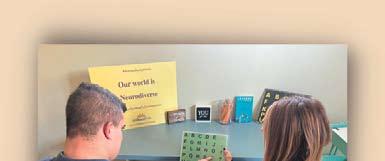

WhatisSpellingtoCommunicate(S2C)?
Itisamethodthatteachesthepurposefulmotortopointto lettersonaletterboardorkeyboardtoenablecommunication.
Whocanuseit?
Autistic,nonspeaking(formerlycallednonverbal)people,and peoplewhohavescriptedand/orunreliablespeech.
Howolddoesyourchildneedtobe?
Weworkwithallages.5yearsoldonwardstoadultsofanyage.

April 2024 | The Special Child 11
Community School
students from New York and New Jersey Empowering bright children who learn differently HS Private Tours available Lower School
Houses
Thursday,
9 Tuesday,
10:00 am *Children are welcome to attend
The
Serving
Open
Saturday April 27*
May
May 21
Early Intervention for Dyslexia
Helpful tips from an expert
Statistics from the Yale Center for Dyslexia & Creativity show that dyslexia affects 20 percent of the population and accounts for 80 to 90 percent of all those with learning disabilities, making it the most common neuro-cognitive disorder.
While dyslexia is a chronic condition that’s rarely cured, early identification and intervention can help build essential skills for reading, writing and comprehension.
Early signs of dyslexia and intervention practices may vary from person to person. We sat down with Dr. Rebecca Mannis, learning specialist and founder of Ivy Prep, about signs of dyslexia that parents can look out for and what intervention may look like.
What are some early signs of dyslexia that parents can watch out for?
Toddler/preschool
• Delayed language development
• Difficulty following multistep directions
• Frustration in communicating – difficulty retrieving words or labels
• Difficulty sitting and retaining the story at circle time
• Meltdowns over communication and transitions
Preschool/primary school
• Difficulty with rhyming (ex: Dr. Seuss books) or appreciate language nuance (ex: getting the joke in Amelia Bedelia books)
• Lack of recall for reading common “sight words” they often see, such as “love” or “taxi”
• Lack of interest in reading or writing
• Contrast between strong interest in hearing stories (being read to) and interest in learning how letters fit together to make words
• Difficulty with segmenting words into sounds (c-a-t) or syllabication (clapping out the syllables in their names “Ga-bri-el”)
• Hesitation about attending school or academic performance
• Difficulty “encoding” or writing short words that can be sounded out or remembering the spelling of “Dolch List,” high
frequency (common) words like “love” or “mother”
• Reversing letters
• Skipping words when read aloud
• Slowness at blending sounds of words or recalling what sight words “say” (lack of fluency/automaticity)
• Dysgraphia, or difficulty in the motor planning of how to hand write letters
What does early intervention for dyslexia look like?
This depends on the individual child’s learning profile and what is being done on-site (or not provided) at the school. Some
children require specialized schools for dyslexic students, where systematic, multisensory approaches are used on a daily basis and across the classes a child has each day.
Other students can thrive with customized support outside school with learning specialists who are trained to interpret test findings and develop an intervention plan that speaks to the specific child and the specific school’s curriculum.
This is where it is particularly important for parents to do their homework. Not all learning specialists have the same training or vantage point about support, and it is big business.
12 SIParent.com | April 2024
special child
? ? ? Y L I ?
E M D A F X S O




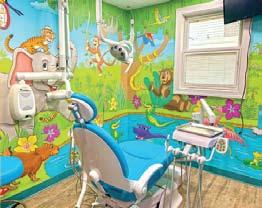




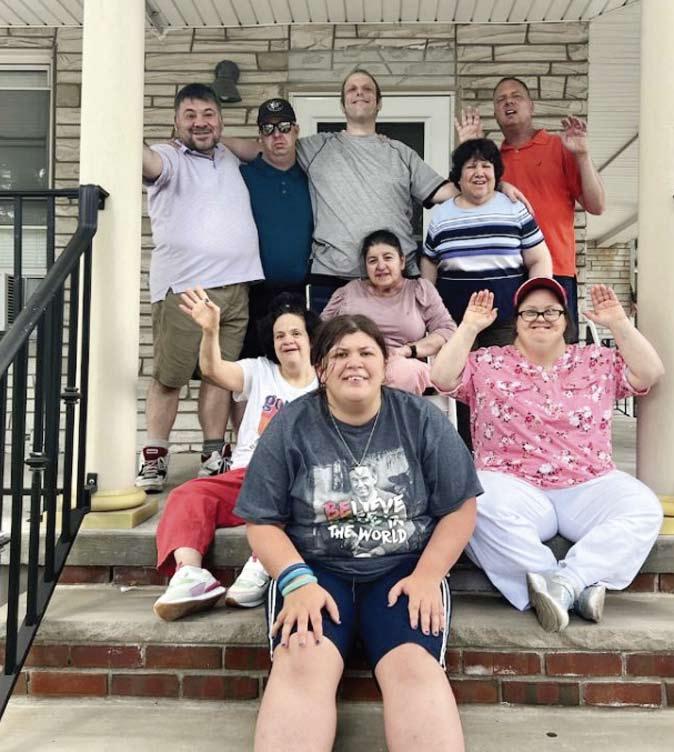







































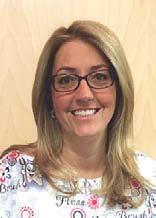















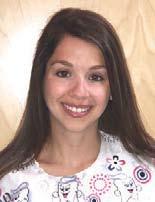










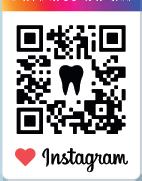




























































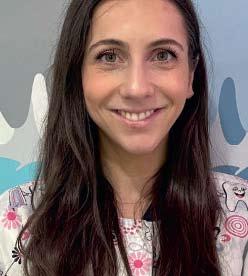
































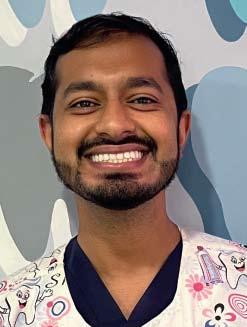


April 2024 | The Special Child 13 KIDS DENTAL AL KIDS DENTAL Helping Kids One Smile at aTime! Your Child’s HAPPINESS & DENTAL HEALTH are our #1 priority! BOARD CERTIFIED PEDIATRIC DENTISTRY KIDS & PARENTS: Dentalvisits can be FUN & STRESS FREE! ��������������������������� 739 Woodrow Road,Staten Island, NY 10312 718-356-5437 www.sikidsdental.com Like us on Facebook @ Kids Dental ofStaten Island Follow us on Instagram @kidsdentalofsi Major InsurancesAccepted. FinancingAvailable. NOW OFFERING LASER DENTISTRY (LIP &TONGUETIE RELEASES) SPECIALIZING IN TREATING THOSE WITH SPECIAL NEEDS Specializing in treating Infants, Toddlers, Children of all Ages, and those with Special Needs "No Insurance? No Worries! Ask About Our In-House Plan Today". Call for Details Exceptional, State-of-the-Art Pediatric Dental Office $ 150 Exam, cleaning. fluoride and X-rays $120 - Exam, cleaning, fluoride $60 - Toddler Special New patients only. Must mention S.I. Parent coupon. S.I.'s Premier Pediatric Dental Office Providing Comprehensive, Personalized Care Dr. Lisa Lazzara Dr. Kathryn Pallonetti Dr. LIz Idelchik Dr. Kirran Tiwari Time for your Spring cleaning • Business Initiatives • Community Habilitation • Day Habilitation • Employment Services • Residential Services • Respite WE OFFER: Visit our website www.onyourmark.org for information! Are you or someone you know in need of our services? Are you interested in a career at On Your Mark? On Your Mark provides innovative and comprehensive community-based services to people with intellectual and/or developmental disabilities across their lifespan. Our person-centered programs promote social inclusion, health and fitness, daily activity participation, independence, self-empowerment and productivity.
There are different philosophies and approaches, and sometimes what is presented as “evidence based” is actually a cookie cutter approach – or the wrong pacing and sequence for your child’s particular needs.
For example, if a student needs high repetition of information or to preview information in order to keep up with the class work, then it is important for a learning specialist to design sessions that balance the specific instruction for underdeveloped skills that are not course-related (for example, how to divide long words into syllables) while also using the child’s homework spelling list or the sight words in their science chapter to manage schoolwork and get that real-time reinforcement of reading strategies that speak to the daily experience in the classroom.
Similarly, it is critical for parents to identify professionals who can balance traditional print tools, such as workbooks and games that reinforce the skills, with adaptive technology. This is where parents can feel particularly frustrated, as neuropsychologists are not educators, and educators are not neuropsychologists.
Approximately 80 percent of my clientele and I start with a consultation where I provide a chart review to demystify the test findings to help parents “connect the dots” between their observations, test findings, and working with schools or other stakeholders.
There is a huge element of “caveat emptor,” since so much of this is not licensed and these high stakes serials can overwhelm kids and parents alike.
Even when specialists have licenses, there is wide variability in skill set, how intervention sessions are constructed, and even attitudes about which support is needed.
For example, at times language specialists or occupational therapists will feel there is more work to be done in grade 4 or 5 in shoring up underdeveloped language or fine motor skills, while other specialists may feel that the priority needs to shift toward teaching students how to communicate better in writing or use adaptive tech, dong so with an eye toward ongoing challenges in processing speed, word finding or handwriting.
How can parents and schools support a child with dyslexia?
Support for dyslexic students is equal parts, art, science, and alchemy.
It’s critical for there to be a systematic approach. Sometimes that means using very similar materials in both outside support and
“There are different philosophies and approaches, and sometimes what is presented as ‘evidence based’ is actually a cookie cutter approach – or the wrong pacing and sequence for your child’s needs.”
during the academic day or in reading intervention at school.At other times, it makes more sense to “divide and conquer.”
For example, at school, a teacher may be focusing on how to write a paragraph with a topic sentence, three supporting details, and a conclusion using a “quick outline” that is very structured, streamlined, and predictable.
In remediation, it can be very helpful for the outside specialist to use the same “quick outline” that the teacher uses in history class. And it may be important to work on writing while using the History assignment if the child is fatigued or has other after-school activities that day.
However, the outside learning specialist may also be incorporating instruction in how to use a predictive word processor, or in helping the child with expanding his vocabulary, so that he doesn’t rely on a narrow lexicon of words to communicate his point in the essay.
Similarly, it may be that at school, the teacher is working on a particular spelling curriculum, where the focus is on spelling words with particular prefix patterns.
In outside support, those words can be practiced, but it’s important to use particular methods that are aligned with the child specific type of dyslexia to ensure that appropriate visual cues or phonetic (sound-letter) patterns are reinforced.
The truth is that this takes a great deal of expertise and time in order to identify ways that support can be integrated while also being realistic about what each individual can contribute to this process.
In the absence of this, it can be very time-consuming and confusing, and also frustrating, not only for the children, but for their parents.
In my practice, I am in frequent contact
with other stakeholders, and typically serve as a case manager, who integrates that information, not only to demystify the process, but also to help parents identify signposts that they can be looking for both to monitor their children’s growth, and to determine the best investment of their resources and the child’s time, if they’re not satisfied with the child’s development.
Another element of providing services to the child and family is helping parents truly understand the different philosophies and methodologies that are available to help children with disabilities.
For example, many specialists will encourage a multisensory, phonics based approach that reinforces sound patterns for children since about 60 to 80% of children with dyslexia have difficulty with phonology, or linking letters to sounds.
However, the research on these highly structured methods and their efficacy with children with more spatial difficulties, sometimes called “NVLD,” or nonverbal.
Learning disorders are mixed. In that situation, a child may need a well developed, but more eclectic approach that helps them for example, to memorize and write sight words, words like “though” or “again,” words that cannot be sounded out phonetically.
Similarly, there are some schools that believe strongly that in the lower school grades, adaptive technology should not be used with children, while other outside specialists or schools integrate technology as a literacy tool for children with developmental dyslexia from the get-go.
Because there is such a wide wide range of approaches, and often neuropsychologists don’t know the nuts and bolts of how these programs are implemented for specific curricula, it is important for parents to understand that, just like learning to read is developmental.
In the same way, learning how to line up your ducks in a row to best serve your child at a given time is an extended learning process – and process of collaboration and empowerment – for parents, as well. No one cares about a child more than a parent, so it is critical to take care of yourself so that you can manage the long haul, along with your spouse and child.
What do accommodations typically look like for dyslexia, at home and in the classroom? What would workarounds look like in everyday life?
Accommodations can look different for children, depending on their learning profile, their school, their grade level, and the situa-
14 SIParent.com | April 2024
special child

694 New Dorp Lane, Staten Island, NY 10306
347-857-6888 www.harvestcafe-si.org

The Harvest Café is owned and operated by A Very Special Place, Inc., whose goal is to create new opportunities for people with intellectual and developmental disabilities. The Café is a certified training site for those who want to learn new skills in a distinctive environment.
“Great Food With a Mission….”
Serving Breakfast, Lunch & Weekend Brunch
Wednesday-Sunday, 8:00am-3:00pm
Catering and Take-Out available


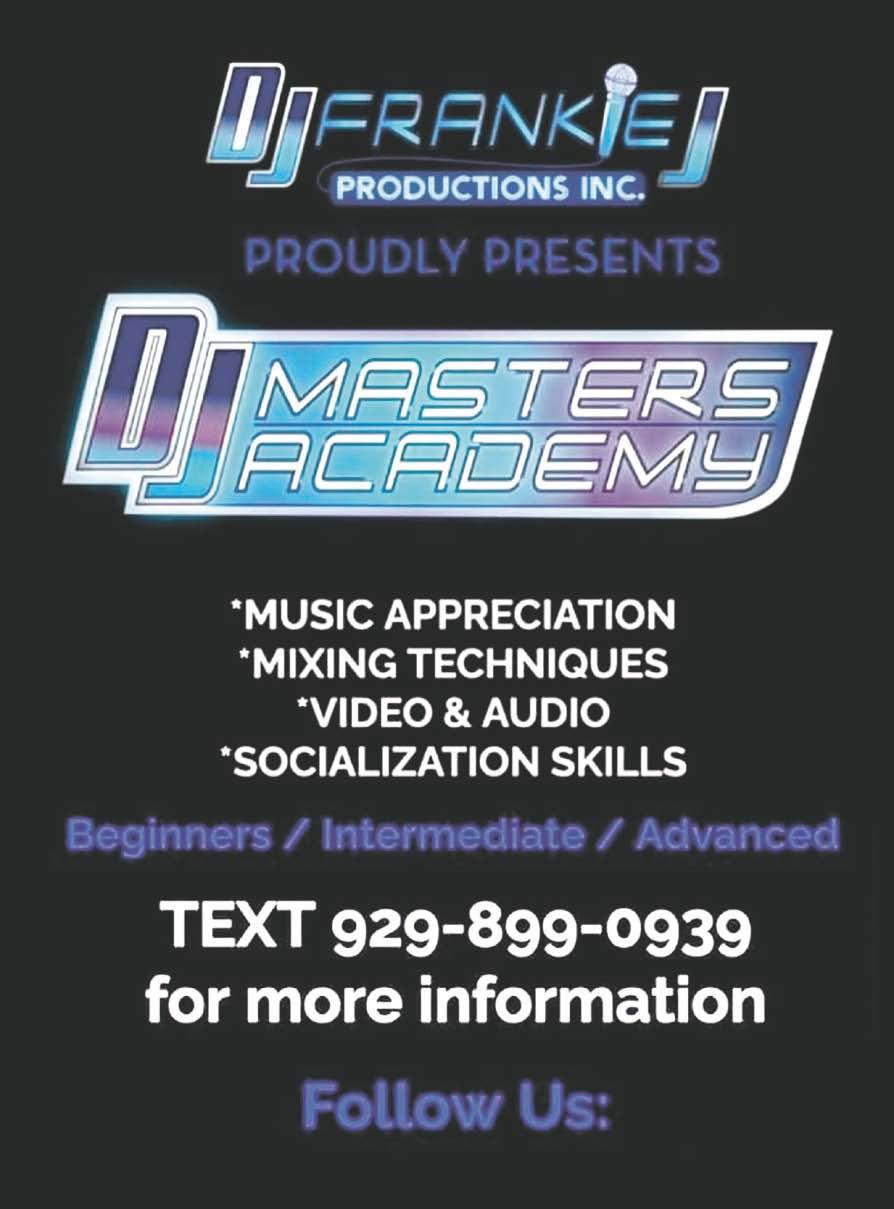


April 2024 | The Special Child 15
tion in which accommodations are necessary.
For a child with language-based dyslexia in the early grades, accommodations might take the form of an alternate method of assessing a child’s spelling, or having an extra set of workbooks to keep at home for use with the outside specialist. The child may be permitted to write fewer spelling sentences on his exam.
That child might need access to a computer in grade 3 to write his weekly journal so that he can focus on expressing his ideas without being encumbered by dysgraphia, or handwriting difficulty.
At grade 5 or 6, that might take the form of being able to have extended time on a test or to take a standardized test in a room over multiple days. Similarly, the child might require some adaptive technology or access to a textbook website, where the child can find PowerPoint slides to preview key terms or information that they will be studying in science class.
Upper school or college, that might take the form of having an advisor, who is attuned to their learning issues, and who can guide them in managing multiple classrooms and teachers. Similarly, children may require the accommodation of being able to substitute the format of a “computer-delivered” standardized admissions or achievement test, instead taking the test in a traditional booklet format.
That means that the child can write into a test booklet with a proctor. Copying his answers onto a Scantron or “bubble sheet,” rather than needing to visually track the paragraph on a computer monitor.
This is a critical accommodation because many standardized tests are moving toward “computer- adaptive,” or mini computer tests, which are actually constraining for students who have a more gradual learning curve, visual deficits, or a slower processing speed.
Similarly, a dyslexic child who has slow processing speed or working memory difficulty may need extra time to complete certain assignments, or may need assistance with laying out a plan for how to manage school and extracurricular activities in light of their slower processing speed or executive function difficulties.
Students in high school or college may also need approval to tape record lectures, or have access to teacher notes or classmates notes if they’re not able to process as much detail as necessary in real time during the lecture.
This is why it’s critical to identify specialists who can mystify neuropsychic, test findings and help parents and students to work with the school around accommodations,
“Children can develop ‘metacognitive awareness,’ or an understanding of themselves as learners, and why certain approaches can be particularly helpful for them.”
curriculum, and intervention.
Support from parents is important for children with dyslexia. How can parents show their emotional support for their dyslexic children?
Any time that a person‘s own development takes a course that is not “typical,” this places a stressor on the individual and the other people in their life.
Whether it’s learning how to tie your shoes, how to memorize the spelling words, or adapting to college textbooks and lectures as a gifted, “twice exceptional” dyslexic, ultimately developmental, learning problems are a lifelong process of learning, adaptation, and advocacy.
The upshot is that over time, children can develop “metacognitive awareness,” or an understanding of themselves as learners, and why certain approaches can be particularly helpful for them. Over time and significant support and practice, this helps kids learn how to be their own “change agents.” However, this is a gradual process, and developmental learning problems, especially for bright kids, in demanding learning environments, is a gradual experience.
It is important for parents to recognize this, so they can think tactically about how they can support their children while also taking care of themselves.
Whether it’s having sufficient time to work out or finding a sounding board to talk about frustrations while also being there to help your child with extra homework, parents need to plan for the immediate and for the long run.
That may be a matter of doing some careful looking at how you will fund outside support for your child for the long run, or how to give attention to siblings and their needs. This can be a difficult, disheartening, and stressful experience for even the most determined, loving, supportive and capable
of parents.
Aside from taking care of themselves and building a village of outside resources, whom they respect, parents can model for their children along the way.
For example, just as children may require more time in order to research and write a term paper if they are dyslexic, parents can model for their children how they are breaking down the process of updating their resumes or planning of family trips by working in manageable chunks.
In addition, it is important for parents to remember that their job is to be parents and not educators or interventionists. Otherwise, the task and frustration of helping kids manage learning issues for the long run can really interfere with a parent and child relationship and can be disheartening for everybody involved.
Most importantly, parents can help their children, identify factors that contributed to their own success, or what it is that children feel need to be done differently in order for them to have a better experience in a similar situation in the future.
For example, if a child is able to juggle the start of baseball season in his Little League team and preparing for the spelling bee, parents can encourage their children, self reflection, or metacognitive awareness, by asking them some open, ended questions. “What do you think made the difference when you were going to have a busy day of both Little League tryouts and reviewing all three vocabulary lists?”
This opens the door for the child to then reflect and share so that you can plan. For example, he may say, “It was very helpful that my learning specialist and I wrote the words on flashcards last week. This meant that all I needed to do was practice spelling.” Or your child may feel that it was helpful when you and he use Scrabble letters for him to practice the spelling of the words or when you had located a website that let him practice unscrambling words in an app.
It may be that your child felt better having had a quiet day before so that the reduced transitions left him feeling more rested and able to juggle Little League and the preparation for the spelling bee.
The more you help your child self reflect, the more you can help him, celebrate his success, identify what he feels and be his own change agent. It can make the difference, and he will see you as the support and sounding board who is cheering him on through this developmental journey.
16 SIParent.com | April 2024
speCial Child

Your online resource for all things parenting
SIParent.com provides a rich array of local resources, useful content, directories and interactive tools to help families meet and celebrate the challenges of parenting.
Visit us online today !

Person Centered Care Services is a not for profit organization creating social change within communities by supporting people with disabilities on their search for identity and acceptance.
OUR CORE VALUES: suPPort
Our responsibility as human beings is to support ourselves and one another
eQuity
To participate in community is to have active citizenship. To be a participating citizen, one must have opportunities which are equitable; which accommodate the differences all human beings have.
aCCeptance
One of the most vital components of having a quality of life is love. It’s okay to tell someone you love them; more importantly, it’s okay to show them. To accept another for who they are and what makes them human can be a most validating experience; it is self-empowering.
SERVICES OFFERED:
Day Supports
• Residential Supports
• Housing Rental Subsidy Career Supports
• Community Habilitation
• Respite Family Education & Training
• Self-Direction
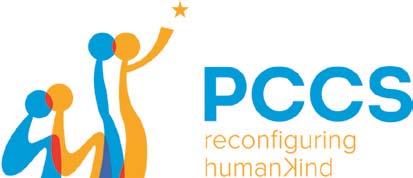
150 Granite Ave, Staten Island, NY 10303 718-370-1088 info@pccsny.org
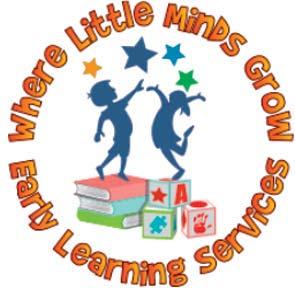
si Parent.com
www.pccsny.org

Connect with us! @pccsny

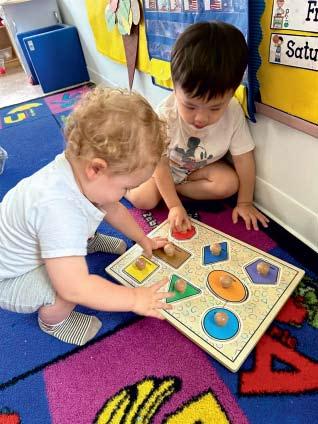


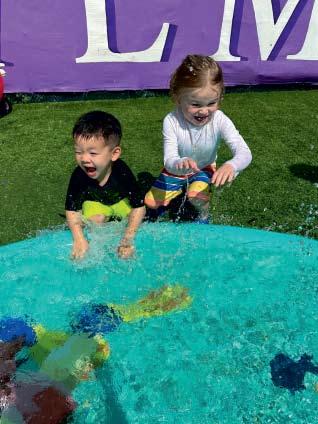



April 2024 | The Special Child 17
ADHD in Children
Symptoms, causes and treatments (other than medication!)
By Jeannine Cintron
Ithink my 12-year-old daughter has ADHD, but she’s not (yet) been diagnosed. Why? Because when I finally decided to have her evaluated, after years of being on the fence about it, I was advised against “opening that can of worms" as long as none of her teachers had ever recommended it.
Can of worms? Really?
While none of her teachers ever expressly recommended an evaluation, I always heard things like “takes forever to complete classwork” and “has trouble focusing” and “gets distracted easily.”
ADHD, or Attention Deficit Hyperactivity Disorder, is described as a chronic neurological condition marked by persistent inattention, hyperactivity, and sometimes impulsivity. It is one of the most common mental conditions in children. Around 6 million children ages 3 to 17 have been diagnosed in the U.S. alone, according to the CDC.
Despite the staggering statistics, I think a lot of people - even professionals, apparently - have this stereotypical view of ADHD that it's just an excuse for lazy or bad behavior, one many parents use to medicate their children into being good without even considering whether other treatments are available. That stigma leads a lot of parents (myself included) to assume medication is the only way to treat it, and that the medication will turn their kids to zombies anyway.
But if your child is showing signs of having a developmental disability like ADHD, don't be like me and wait until they are halfway through middle school before you finally decide to take action just because a teacher never told you to. No one knows your child like you do, so if you are concerned, have them evaluated and know there are options beyond medication (and also know that medication might actualy end up being the right choice for your family).
I spoke to Dr. Rebecca Jackson, a board certified cognitive specialist, Brain Wellness Expert, and author of Back on Track: A Practical Guide to Help Kids of All Ages Thrive , which delves into developmental red flags, to learn more about ADHD, why diagnosis seem to be
on the rise and what parents can do if they are concerned.
ADHD Signs & Symptoms in Children
Hyperactivity. According to Dr. Jackson, the “H” in ADHD, as in hyperactive, tends to be more noticeable in younger children. "The older your child is, the less likely you are to note the hyperactivity,” she says. “The hyperactivity component tends to be the piece that draws attention the most. It’s disruptive in the classroom, at the dinner table, on playdates. So oftentimes, the first sign or symptom that parents see is the hyperactivity impulsivity, because of all the disruptions happening.”
Inattentiveness . “What is much more easily missed is the inattentive type of ADHD,” she continues. “And that one becomes more evident the older a child gets, because with that you don’t have the loud disruptive behaviors, but you see heightened challenges with executive functions. This is going to be the child that does the homework and forgets to turn it in. And as a parent, you’re like, ‘Are you kidding me? You already did the hard work!’ You find yourself saying, ‘why didn’t you just…’ all the time. Why didn’t you just remember to bring your lunch with you in the morning? Why didn’t you just turn in your homework?”
Limited Attention Span . We all have a natural window of attention, according to Dr. Jackson, and our attention develops with age and maturity. “A two year old is only going to do a thing for two to four minutes at a time. But by the time they get to kindergarten, a child should be able to sit in the circle and participate for a longer period of time. So as a parent, if you’re not seeing your child’s natural window of attention improving over time, and if everybody else in the class is able to attend to the task long enough to complete it, but your child’s needing redirection or needing to bring it home, that is a red flag.”
Task Switching . Executive functions are our ability to achieve a goal, like turning in homework to get good grades. Individuals with ADHD have a harder time with task switching and with executive functions. “Let’s
say I’m working on a project and my phone dings to tell me I have a text message. I’m going to shift my attention to my text message,” says Dr. Jackson. “Task switching should remind me to go back and finish the project that I started. But with ADHD, it’s harder task switching when the brain is not remembering to go back and finish what it started. Lots of started things don’t get completed.”
Emotional regulation . People with ADHD tend to have difficulty managing frustrations. We all have a point where we get frustrated and upset, or we cry when we’re really angry or we lose our temper. “With ADHD there’s an immaturity in some of those networks and pathways in the brain, and so the upsets can happen more frequently,” Dr. Jackson says. “They can last longer and they can be bigger. And so if you’ve got a daughter that’s really dramatic and always getting super upset with friends, that can be a red flag. Or a boy playing on the playground who gets super upset because people aren’t following directions, that can be a red flag. And again, we all have a threshold of when we lose our temper. But if it’s happening more consistently than peers that are appropriate in their development, that’s a concern.”
Causes of ADHD
So what causes ADHD? That’s the million dollar question, Dr. Jackson says. “There are a lot of different factors that can contribute to ADHD. Both genetics and environmental factors can play a part. If a child experiences trauma, abuse
18 SIParent.com | April 2024
special child
or neglect, it can interfere with development.
"But there’s also the times where I meet a parent with two kids, same household, same environment, same genetics, and one child is thriving while the other faces challenges with ADHD.”
Technology & ADHD
I asked Dr. Jackson if the overuse of technology is a factor in developing ADHD. “I’m not going to say that scrolling social media and gaming causes ADHD, but what I am going to say is that the individual with ADHD is going to be even more susceptible,” she says. “When we’re spending large chunks of time, scrolling the Internet, whether we’re watching YouTube videos or Tik Tok, videos or gaming, the type of attention we’re using is heightened attention. And when you’re in that hyper focused mode, you lose awareness of time and of what’s happening around you. It’s why when you go to bed at night and say ‘I’m just going to check my phone for a minute,’ before you know it an hour passes and you’re still scrolling.
“Hyper focus is incredibly fatiguing on the brain. It makes the brain exhausted. Let’s say you’ve got an eight year old who just spent two hours on Tik Tok or watching YouTube videos or gaming. When you ask them to stop, you’re going to get tears, pushback, negative behavior. It’s not just that they don’t want to stop. It’s that we just allowed them to completely fatigue their brain and their resources. And now we’re asking them to be able to regulate their mood and emotions.
“When you watch something that you
like, funny dog videos for example, there’s a dopamine release in the brain.that gives you a burst of energy.
“So when a parent asks why they can game for an hour but they can’t do 20 minutes of math, it’s because gaming is short bursts of attention strung together with a dopamine reward in the brain. When you’re doing math, there’s no dopamine reward in the brain. So our kids are exercising their reward-driven pathways, not sustained attention. The individual with ADHD is starting with a brain that’s already fatigued, so they’re going to fatigue even faster. And that dopamine is hitting them hard and so they’re going to gravitate towards those activities even more. As parents, we don’t want to ban things but be mindful of the balance. So say, ‘sure, you can spend 20 minutes online, but you’re going to get your homework done first. We shouldn’t have you gaming and fatiguing the brain before you do homework. And then we don’t want it in the hour before bed because it can disrupt the ability to fall asleep and the quality of sleep.”
ADHD Treatment
Speaking of quality of sleep, that’s one of the components to managing ADHD on a daily basis to support the level of function that you currently have. Dr. Jackson recommends making sure kids are getting adequate sleep and eating nutritious foods. “We know that sugar drives inflammation and so does highly processed food. Inflammation is like asking your brain to function with fog. What you eat matters,” she says
Medication
To medicate or not medicate, that is the question. There can be many side effects related to ADHD medication, and so naturally parents might be hesitant to try it on their child. Conversely, some parents might think medication is the easy cure-all their child needs to get back on track.
Anytime there’s medication, there’s a trade off, Dr. Jackson explains. “There are pros and cons, risks and benefits that it’s important for parents to understand. We talk to so many families that are getting pressure from teachers or from other adults in their life to medicate their child. But that is a decision solely between the parent and the physician, that should not be based on outside pressure from others.
“I don’t ever want a parent to feel guilty about a decision they make. But there’s this misnomer that we’re going to start medication and all of our problems are going to be solved. It’s difficult figuring out what’s the right medication
for your child, the right dosage and combination. And what works now might not work six months from now. So it’s not always the quick, easy fix that parents think it’s going to be.
“What we know from the research is that there’s an impact on growth and development. A child that has been medicated over time might not grow to their full height. We know within the first several months of taking medication, there’s not always long term change in the grades and learning outcomes. So the studies were mixed in terms of how it helps with academics and learning. A lot of kids experience decreased appetite, so we have kids that already have immaturity and brain development, and our foods that we eat fuels the growth and development of our brains. We’ve got an immature brain and a suppressed appetite, and that worries me for the future development of that brain."
Brain Balance
While medication can help, there are other treatment options that parents might not be aware of. Dr. Jackson is Chief Program Officer for a company called Brain Balance, which is a program that builds and strengthens networks and pathways in the brain through specific stimulation, exercises, and activities. “I always say we exercise the brain the way you use it in real life," she says. "At Brain Balance, we’re engaging multiple different senses while a child is doing coordinated, fast, accurate eye movements with auditory processing, visual processing, body coordination, rhythm and timing, exercising and engaging as many networks and pathways as we can simultaneously. And then we engage those pathways over and over to make them stronger, faster, more efficient.”
A child does not need an official ADHD diagnosis for this kind of non-medicated treatment, either. Nearly 10% of kids in the US right now qualify for that diagnosis, but nearly 17% of kids qualify for what is called a subthreshold diagnosis, meaning they’re falling just shy of the criteria. I think this is really important because the kids can still be struggling to keep up, to pay attention and to regulate mood and emotions. With subthreshold ADHD, there’s immaturity of the brain, but maybe not quite to the extent of full ADHD, so they don’t qualify for a label or a diagnosisand would not be prescribed medication - but that doesn’t mean that they still don’t need help and support.”
To learn more about Brain Balance, go to brainbalancecenters.com. Dr. Jackson’s book, Back on Track, is available on Amazon.
April 2024 | The Special Child 19
a very s pecial Place
49 Cedar Grove Avenue
718-987-1234
info@avspny.org
avspny.org
A Very Special Place, inc. (AVSP) was established in 1974 as a not-for-profit organization and today serves more than 1,600 people in Staten island, Brooklyn and Manhattan. AVSP provides a comprehensive network of programs and services for people with intellectual and developmental disabilities and their families. Programs include day habilitation, residential, self-direction, respite and community habilitation. With the guidance and support offered at AVSP, people of all ages find opportunities to achieve independence and self-fulfillment.
the Community school
11 W Forest Avenue, Teaneck, NJ
High School: 201-862-1796
CHSoffice@communityschool. k12.nj.us
1135 Teaneck Road, Teaneck, NJ
Lower School: 201-837-8070 office@communityschool.us communityschoolnj.org
Community School serves the bright child with learning and attentional disabilities. For 55 years the school’s primary goal has been to help children achieve a level of classroom performance that is fully commensurate with their abilities, intellects and talents. Community School welcomes students from New York and New Jersey, and is located just over the George Washington Bridge, in Teaneck, NJ.
Crimson r ise
1015 Castleton Ave. crimsonrise.org
info@crimsonrise.org
CrimsonRise teaches nonverbal autistic individuals, ages 5 to 60+, communication access through the Spelling to Communicate (S2C) method. S2C teaches purposeful motor skills to point to letters on a board or keyboard. Through this method, CrimsonRise enables individuals to express their thoughts and emotions. CrimsonRise’s services include one-on-one coaching with parent training and S2C
based programs and services. CrimsonRise is uniquely cofounded and guided by nonverbal autistics who gained their voice through S2C.
DJ m asters academy
265 Main St. 929-899-0939
facebook.com/
groups/766611651761435
djfrankiejteaches@gmail.com
DJ Masters Academy was created to enrich children’s lives by cultivating a love for the art of DJing. The Company provides training in all areas of DJing to all children, including specialized programs for those with special needs. The classes are focused on mixing, video & audio and Emcee skills, while also promoting music appreciation and socialization. The Company’s Director, Frank Jaconetti, with his team of instructors, has over 25 years of experience in the industry...creating smiles one beat at a time.
e xtended h ome Care
1200 South Ave. 347-459-8441
Extended Home Care is a Special Needs, Certified Home Health Care Agency, serving New Yorkers since 1997. They specialize in providing home care services to patients and their families with OPWDD. Nursing, Physical Therapy, Occupational Therapy, Speech Therapy and HHA services all provided in the comfort of your home. Servicing ages 3 and up. Therapists are available after school and after Day Hab programs. Offering services to Residential Programs as well.
the g race Foundation
460 Brielle Ave. 718-983-3800 graceofny.org
The Grace Foundation improves the lives of individuals and families affected by Autism Spectrum Disorder (ASD). Grace provides programs including Site Based Respite/in-Home Respite, Day Hab, Com Hab and for ages 5-30. The ultimate goal is to enable individuals with ASD to lead independent and productive lives.
illuminart Productions
1000 Richmond Terrace 347 951 9650 ext. 1 illuminart.org
ariel.illuminart@gmail.com
Embark on an epic journey with Hephaestus, son of Zeus and Hera, as he uses innovation to save Mount Olympus from the mischievous goddess of discord. “The Greatest Olympian: A Mythic New Play,” written by J. Giachetti, will premiere at Staten island Playhouse in April with a sensory-friendly show at 11 am on April 27th. Don’t miss out on this legendary adventure for lovers of fantastical tales and myths.
JCC Day Camp & m arvin’s Camp for Children with s pecial n eeds
HKC Campgrounds
1131 Manor Rd. 718-475-5268
camp.sijcc.org/marvins-camp. html
lirizarry@sijcc.com
The Joan & Alan Bernikow
JCC of Staten island’s Marvin’s Camp for Children with Special Needs offers an educational, creative, social, and safe environment for kids, teens, and young adults with special needs. Marvin’s Camp staff are highly experienced in special education, social work, and school psychology. Marvin’s Camp maintains low camper-to-staff ratios to ensure excellent care and attention for each child. Campers enjoy activities at Henry Kaufmann Campgrounds and trips to fun destinations.
k ids Dental, Dr. lisa
l azzara
739 Woodrow Rd. 718-356-5437 sikidsdental.com
Kids Dental understands that every child’s dental needs are as unique as their smiles and require an individualized approach. All doctors at Kids Dental pride themselves on specialized and comprehensive care solely focused on your child’s needs, especially those with special needs.
the l aw Firm of kevin P. m ckernan
503 Mosely Ave. 718-317-5007 kmckernanlaw.com
Seeking compassionate legal counsel for your family’s future? Look no further. Kevin McKernan Law specializes in estate planning, wills, and trusts tailored to families, especially those that have special needs children and young adults. With a deep understanding of the unique challenges you face, we craft comprehensive and personalized solutions to ensure a secure and thriving future for your loved ones. Put your family’s well-being first - contact them today for expert guidance in safeguarding your family’s financial legacy and your child’s future.
los n iños
505 8th Avenue, New York, NY Floor 12A, Room 2
Los Niños Services is an award-winning agency serving the developmental needs of children and their families. They specialize in home and community-based ABA, special instruction, speech, occupational, and physical therapies. All staff are experienced clinicians who pride themselves on being of great service to others. Serving children and families in Westchester and New York City boroughs. The programs through which they provide services are the Early intervention Program and ABA through private insurance.
o n your m ark, i nc.
645 Forest Ave.
718-720-9233
Kids Dental has kid-friendly themed rooms for your child to relax and make the first experience a very happy one. From the moment you walk into the office, their focus is on your child.
onyourmark.org
eciraola@onyourmark.org
Since 1979, the mission of On Your Mark has been to provide innovative and comprehensive communitybased services to people with intellectual and developmental disabilities across their lifespan. They are committed to helping each individual experience the highest quality of life possible by providing person-centered programs that promote community and social inclusion, health
20 SIParent.com | April 2024 S pecial N eed S d i R ecto R y | Special Advertising Supplement
and fitness, daily activity participation, independence, self-empowerment, and productivity.
Person Centered Care s ervices
150 Granite Ave. pccsny.org info@pccsny.org
Person Centered Care Services is a not-for-profit organization creating social change within communities by supporting people with disabilities on their search for identity and acceptance. Services available include Community Supports, Residential Supports, Career Supports, Day Supports, Family Education & Training, and Self-Directed Supports.
s andra m azzucco, s peechl anguage Pathology
465 Belfield Ave. 917-825-9005
Providing speech and language therapy to the Staten island community for over 40 years. Toddlers to seniors. Specializing in fluency and
stuttering, language and feeding disorders. Prompt trained for Apraxia of speech and phonological and articulation disorders. ASHA certified.New York state license in Speech and Language Pathology. Department of Education RSA accepted.
staten i sland alliance for n orth s hore Children and Families
statenislandalliance.com sialliance2022@gmail.com
The Si Alliance for North Shore Children and Families is a coalition of organizations, schools and community members focused on improving the overall well-being of children 0-8 years old. The Si Alliance promotes equity and addresses disparities while connecting Si North Shore families to resources located on Si . Families can access the Si Alliance Resource Hub via the website.
s unny Days Consulting s ervices
1110 South Ave., Suite 405
718-556-1616
sunnydays.com
Sunny Days provides homebased evaluations and ongoing therapy for infants and toddlers (ages birth to three years) suspected of having any developmental delays. They offer Speech Therapy, Occupational Therapy, Physical Therapy and Special Educational services. Services are funded by the NY State Department of Health. No out of pocket expenses necessary.
thrive Creative a rts therapy
4300 Hylan Blvd. thrivecreativeartstherapy.com thrivecreativeartstherapy@ gmail.com
At Thrive, they offer a range of in-person and virtual sessions to cater to the diverse needs of the Staten island community and beyond. Their services are available to individuals of all ages, including children, adults, and couples seeking healing from anxiety disorders, depres-
sion, relationship issues, and specialized care for children with special needs. Thrive’s highly trained therapists integrate the expressive arts into their sessions with clients to support them toward their best life.
Where little m inds g row
501 Richmond Hill Road wherelittlemindsgrow.com info@wherelittlemindsgrow. com
At Where Little Minds Grow Summer Camp, our goal is to provide the children with a fun filled learning experience. Their fully licensed SpeechLanguage Pathologists, Occupational Therapists, and Special Education Teachers use a multidisciplinary approach. Children ages 2-5 will be presented with the opportunity to form relationships with peers, while acquiring and maintaining early academic skills. WLMG strives to offer fun and challenging indoor and outdoor activities.
Mommybites.com provides expertly curated resources for all parents in the New York area, including our most popular feature — our mom-generated nanny board — the best online source for parents to find vetted (by other parents), experienced nannies and childcare providers who want to work in New York City, Westchester, Long Island and Northern New Jersey.
MommyBites.com We can’t wait to see you there! is now part of
April 2024 | The Special Child 21
Jacqueline
Scarcella Executive Director, A Very Special Place, inc
Jacqueline Scarcella started at AVSP, Inc. in 1994 as a Pre-vocational Specialist. Over the years, she has served in many different roles at AVSP. Currently, Ms. Scarcella is the Executive Director with administrative responsibility over the entire agency and its various programs. She serves on the Inter-Agency Council (IAC) Board, advocating for individuals with intellectual and developmental disabilities. Ms. Scarcella was also an instructor/trainer of Strategies Crisis and Prevention for over 20 years.
l
akshmi rao Sankar Executive Director and Cofounder, CrimsonRise
Lakshmi Rao Sankar is the Executive Director and cofounder of CrimsonRise, which provides nonverbal autistic individuals with a way to communicate using Spelling to Communicate (S2C). Lakshmi is a registered S2C practitioner and a leader in the movement. In addition to leading CrimsonRise she writes, mentors and presents nationally, and internationally on all aspects of Spelling to Communicate.
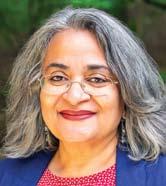
cathy Del Priore
Executive Director, GRACE Foundation
Cathy is the Executive Director of The GRACE Foundation, where she takes great pride in supporting individuals living with autism spectrum disorder. During her eight-year tenure with GRACE, Cathy has spearheaded numerous initiatives to raise awareness and enhance the foundation’s brand. Notable achievements include breaking two Guinness Book of World Records for autism awareness and neurodiversity: orchestrating the world’s largest human puzzle piece with 2423 participants and the world’s largest infinity symbol with 1530 participants.
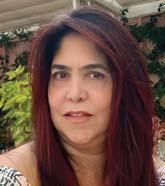
Frank
Jaconetti President, DJ Masters Academy
Frankie J’s story began at an early age when he was introduced to a microphone. As he got older he took his talents to the karaoke scene. His journey took a twist when he was inspired to become a DJ, creating a captivating entertainment company. He wanted to do something more rewarding by sharing his knowledge with others. He embarked on a mission to teach the art of DJing… creating smiles one beat at a time.
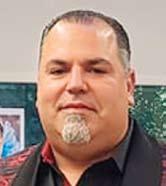
ariel marcus-Hollenbeck
Artistic Director, illuminArt Productions
Ariel Marcus-Hollenbeck (she/her) is a Staten Island native and the current Artistic Director of IlluminArt Productions. This growing Staten Island-based company uses the arts as a tool to spark conversations across all ages. She is one of the five founding members of the Women’s+ Playwright Collective and is now the Festival Director. Ariel loves the spoken word, the marching arts of color guard, and bringing a sense of play into her life.

Jamie Fialo
Executive Account Manager, Extended Home Care
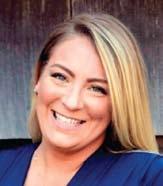
For over 20 years Jamie Fialo has worked in the Home Care Industry. Previously, she worked as a DSP and ABA Therapist. After her son was diagnosed with autism it triggered her passion to work with the special needs community. In her current role, Jamie educates parents and guardians on services their children and family members are eligible to receive. Jamie is an asset to the special needs community.
Glenn wechsler
Chief Program Director of Youth & Camping Services, JCC Day Camp & Marvin’s Camp for Children with Special Needs

Glenn Wechsler is Chief Program Director of Youth & Camping Services at the Joan & Alan Bernikow JCC of Staten Island. He is Co-Director of JCC Day Camp, which includes Marvin’s Camp for Children with Special Needs. Glenn’s JCC Day Camp experience began as a camper, before joining the staff and working his way up from counselor to Co-Director. In his current role, Glenn oversees the camp and ensures that Marvin’s campers feel included.
Dr. lisa l azzara
Board Certified Pediatric Dentist, Kids Dental
Dr. Lisa Lazzara is a board certified pediatric dentist specializing in laser lip and tongue releases. She has completed four years of college, four years of dental school, and an additional two years of a pediatric dental specialty program; which focused on comprehensive dental care for children of all ages, including those with special needs. Her personal mission is to treat your child the same way she expects someone to treat her own children.
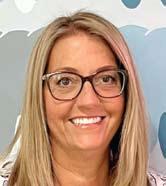
22 SIParent.com | April 2024 S pecial N eed S d i R ecto R y | Special Advertising Supplement Special Need S c ommu N ity
Kevin P. mcKernan Lawyer, Law Firm of Kevin P. McKernan
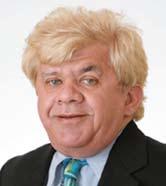
Kevin P. McKernan of McKernan Law has been practicing law for more than 20 years. Kevin is a graduate of the University of Notre Dame and Fordham Law School. For many years he has been in private practice with offices in New Jersey and New York. His firm, along with his Of Counsel Vanessa Bellucci Markos, represents clients in Estate Planning and Medicaid Planning, specifically Wills, Trusts, Guardianship, Estate Planning, Medicaid Planning and Special Needs Trusts. Mr. McKernan is a member of the New York, New Jersey State Bar Association and Chair of the New Jersey State Bar Municipal Court Committee
Scott mesh
Clinical Psychologist, Los Ninos
Scott Mesh, PhD is a Clinical Psychologist and CEO of Los Ninos Services, a 10x Best Company Award winner which has operated in New York City and Westchester for 25 years. He is also the Founder/Director of YoungChildLearning.com which provides free webinars and workshops for early childhood professionals.
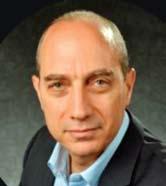
Sandra mazzucco
Speech Pathologist, Sandra Mazzucco Speech Pathologist
Sandra Mazzucco, M.S., CCC-SLP, has provided speech and language therapy to the Staten Island community for over 40 years. Specializing in fluency, stuttering, language, and feeding disorders, she is Prompt trained for Apraxia of speech, phonological, and articulation disorders. Certified by ASHA and licensed in New York, Sandra is dedicated to delivering tailored therapy approaches, ensuring comprehensive support for clients of all ages from toddlers to seniors.

John Bilotti
Executive Director, On Your Mark, inc.
Mr. John Bilotti has been a part of On Your Mark, Inc. since 1979 when his brother began receiving recreation services. Mr. Bilotti is one of ten children. Over the years, he ensured his brother received top-quality care by staying engaged with the agency. He became a board member in 2005, then Associate Executive Director in 2010, and finally Executive Director in 2011, which is the position he currently maintains.

Diana Jaquez
Early intervention Ambassador, Staten island Alliance for North Shore Children and Families
As the parent of three wonderful children, including one who received early intervention services, Diana Jaquez understands the importance of EI services and the challenges of navigating the system. She is a strong advocate for the North Shore’s families and works to connect them with resources to meet their children’s needs.
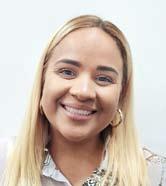
cris marchionne
Founder/Executive Director, Person Centered Care Services
Cris marchionne is the founder/executive director of Person Centered Care Services, Inc. Cris has a Master’s degree in Disability Studies and over 30 years of experience working with and for people with intellectual and developmental disabilities. Cris considers herself a social justice activist and takes pride in speaking at many local and statewide events to point out the need for change and the need for a more equitable society filled with opportunities for all human beings.
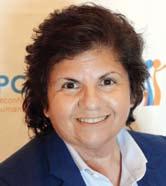
Stephanie Kemmer
Founder, Clinical Director, Thrive Creative Arts Therapy, PLLC
Stephanie Kemmer, the visionary behind Thrive Creative Arts Therapy, is a devoted clinician committed to fostering community, meaningful connections, and inclusive spaces. With an emphasis on open communication and the strength of community, Stephanie believes in providing everyone access to their true creative self.

Jenna Baratta
Speech-Language Pathologist/Clinical Director, Where Little Minds Grow
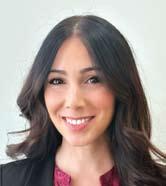
Jenna Baratta holds a master’s degree in speech-language pathology from St. John’s University. She earned her Certificate of Clinical Competence in 2008 and received high-level training in language disorders for children 3-16. She established Where Little Minds Grow in 2019. WLMG is an Integrated Special Education Center offering related Speech and Occupational Therapy services. She continues to pursue her professional goals through continued education and is committed to working alongside the SI community.
April 2024 | The Special Child 23
































































































































































